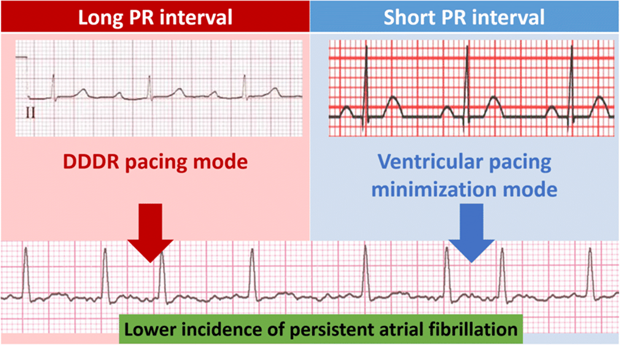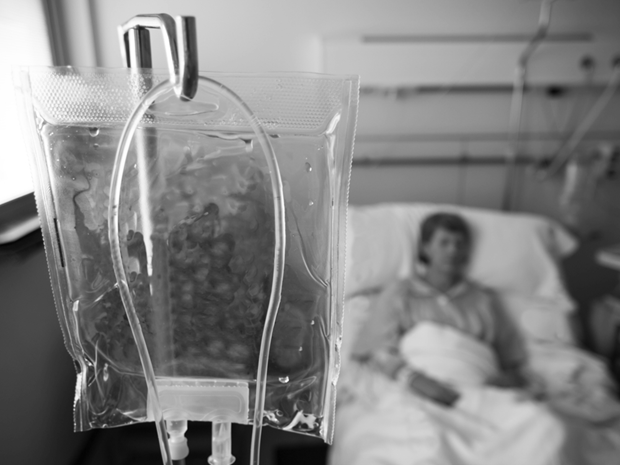A nurse in an emergency department is reviewing a client's ECG reading.
Which of the following findings should the nurse identify as an indication that the client has first-degree heart block?
Prolonged PR intervals.
Nondiscernible P waves.
More P waves than QRS complexes.
No correlation between P and QRS waves.
The Correct Answer is A

First-degree heart block is a type of atrioventricular (AV) block that involves the consistent prolongation of the PR interval (defined as >0.20 seconds) due to delayed conduction via the atrioventricular node.
This is seen on an ECG as a PR interval greater than 200 ms in length.
Choice B: Nondiscernible P waves are not an answer because it is not mentioned as a characteristic of first-degree heart block in my sources.
Choice C: More P waves than QRS complexes is not an answer because it is not mentioned as a characteristic of first-degree heart block in my sources.
Choice D: No correlation between P and QRS waves is not an answer because it is not mentioned as a characteristic of first-degree heart block in my sources.
Nursing Test Bank
Naxlex Comprehensive Predictor Exams
Related Questions
Correct Answer is A
Explanation

Administering IV fluids can help maintain blood flow to the kidneys and prevent acute kidney failure.
Choice B is incorrect because inserting a urinary catheter does not prevent acute kidney failure.
Choice C is incorrect because an intravenous pyelogram is a diagnostic test and does not prevent acute kidney failure.
Choice D is incorrect because beta-blocker therapy is not used to prevent acute kidney failure.
Correct Answer is A
Explanation
Let’s break down the problem step by step:
Step 1: Convert the client’s weight from pounds (lb) to kilograms (kg). We know that 1 kg = 2.2 lbs. So, we have: 220 lb ÷ 2.2 = 100 kg
Step 2: Calculate the total amount of naloxone needed. The doctor ordered 10 mcg/kg, and the client weighs 100 kg. So, we have: 10 mcg/kg × 100 kg = 1000 mcg
Step 3: Convert micrograms (mcg) to milligrams (mg). We know that 1 mg = 1000 mcg. So, we have: 1000 mcg ÷ 1000 = 1 mg
Step 4: Calculate the volume of naloxone solution needed. The available naloxone solution is 0.4 mg/mL. So, we have: 1 mg ÷ 0.4 = 2.5 mL
So, the nurse should administer 2.5 mL of naloxone. Since we are asked to round off to the nearest tenth, the final answer remains 2.5 mL.
Whether you are a student looking to ace your exams or a practicing nurse seeking to enhance your expertise , our nursing education contents will empower you with the confidence and competence to make a difference in the lives of patients and become a respected leader in the healthcare field.
Visit Naxlex, invest in your future and unlock endless possibilities with our unparalleled nursing education contents today
Report Wrong Answer on the Current Question
Do you disagree with the answer? If yes, what is your expected answer? Explain.
Kindly be descriptive with the issue you are facing.
